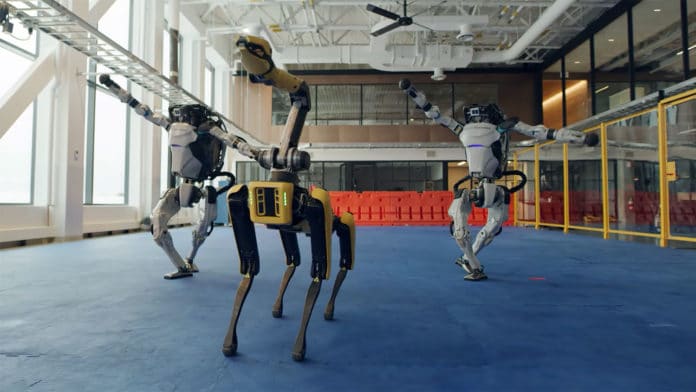Boston Dynamics, one of the most promising companies in the robotics sector, shows us the new skills of its robots: dancing. Humanoid robot Atlas and the entire Boston Dynamics robots family – including robot dog Spot and box-stacking Handle – danced together for the first time to the classic song “Do You Love Me” in celebration of the New Year.
In the most impressive robot video to date, published on the company’s YouTube channel, the abilities of the three robots to jump, stand on one leg, and swing smoothly without losing their balance at any time, are appreciated in all their splendor. First, two humanoid Atlas robots dance to the classy tune from The Contours, and then the Spot robot dog joins the performance. And at the end, the long choreographed dance video features a special appearance from Handle, the robot moving on two wheels.
The robots dance for more than two minutes with surprising balance and coordination. It is worth noting that Atlas robots showed off some really impressive dance moves that could make anyone jealous.
Back in 2018, the company shared a video of Spot dancing to “Uptown Funk,” but it wasn’t able to dance pointe like its 2020 counterpart. Also, recently, we saw the robot dog dancing in baseball games in Japan.
Over the past few years, Boston Dynamics robots have shown us what they are capable of. Humanoid robot Atlas knows how to run and parkour. Spot, on the other hand, has been seen herding sheep in New Zealand, helping treat COVID-19 patients, and working on an oil rig. The robot dog is the company’s only currently available commercial product, which went on sale earlier this year with a price tag of $75,000. First revealed in 2017, Handle is a research robot with two flexible legs on wheels and two “hands” for manipulating or carrying objects.
Earlier this month, Hyundai purchased an 80% stake in the company, making it the firm’s third owner after Google (in 2013) and SoftBank (in 2017).
